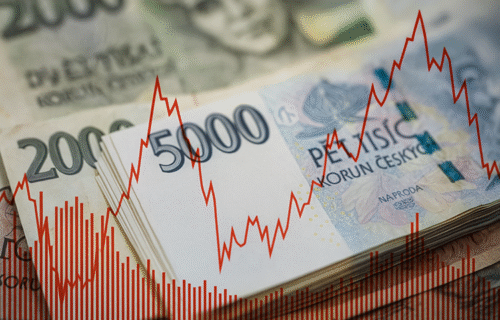Yields on Czech government bonds declined on Monday, signaling renewed investor confidence following the weekend’s parliamentary election. The shift suggests that fears of a potential fiscal loosening under a new administration have eased, easing borrowing costs for the state after weeks of pre-election volatility.
Prior to the vote, yields on the 10-year Czech government bond climbed to around 4.5 percent — their highest level in nearly two years — as markets priced in political uncertainty and concerns about a possible rise in public spending. Following the results, yields have edged down to roughly 4.4 percent, reflecting improved sentiment among both domestic and foreign investors.
“Some investors worried that a change in government might bring a looser fiscal stance and faster debt accumulation,” said Jan Bureš, chief economist at Patria Finance. “Now that the election outcome points to a coalition that emphasizes budget responsibility, those concerns are fading.”
The victory of Andrej Babiš’s ANO movement, which secured 80 seats in parliament, has been welcomed by markets as a sign of stability. ANO is expected to form a coalition with the Motorists party and possibly the SPD. Analysts say that the inclusion of the Motorists, who have pledged to support balanced budgets by the end of the decade, is helping to reassure investors.
“The decline in yields shows investors are reacting positively to the political configuration,” said Tomáš Pfeiler, portfolio manager at Cyrrus. “With the ANO-Motorists alliance taking shape, the market is reading this as a sign that fiscal discipline will remain a key priority.”
Analysts also note that the likely exclusion of more radical parties from the governing coalition has contributed to the relief rally in bonds. “The market sees this as a pragmatic outcome,” Bureš added. “The absence of parties pushing for expansive public spending reduces the risk of sudden fiscal shocks.”
The Czech bond market has been volatile in recent months, reflecting wider uncertainty across Central Europe as elections and slowing growth tested investor confidence. With inflation now easing and the Czech National Bank keeping rates steady, analysts believe government borrowing costs may continue to stabilize in the coming weeks — provided that fiscal policy remains predictable.
“The reaction we’re seeing today is essentially a vote of confidence,” Pfeiler said. “Investors are giving the new government the benefit of the doubt — but they’ll be watching closely to see if promises of budget discipline turn into action.”
Source: CTK
